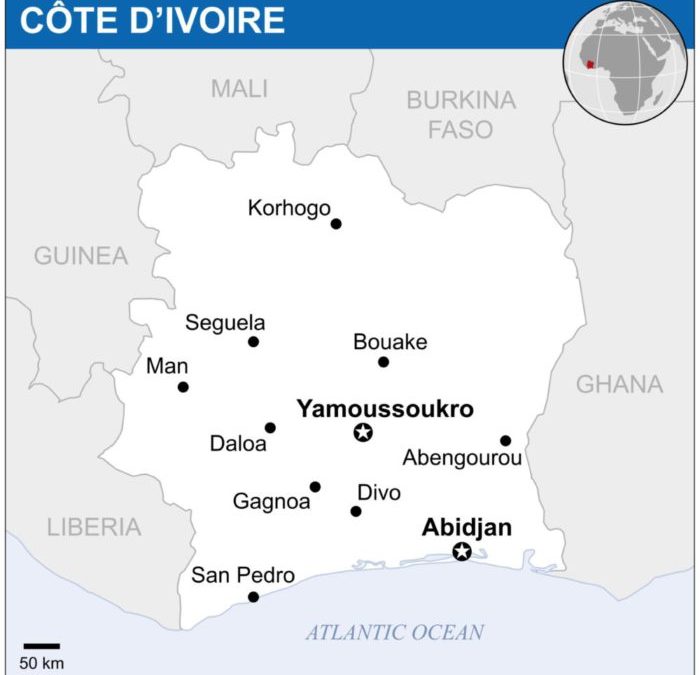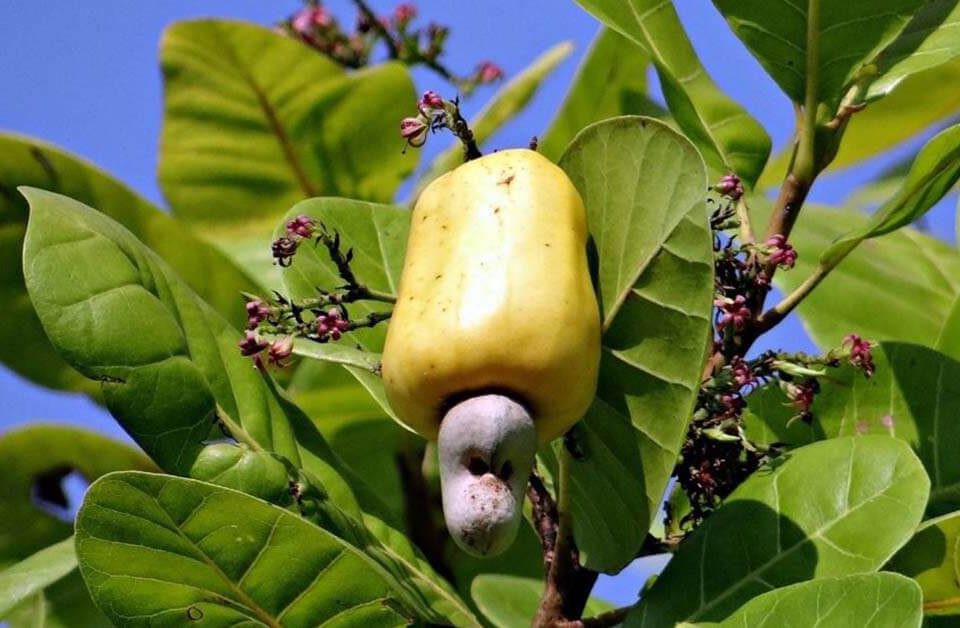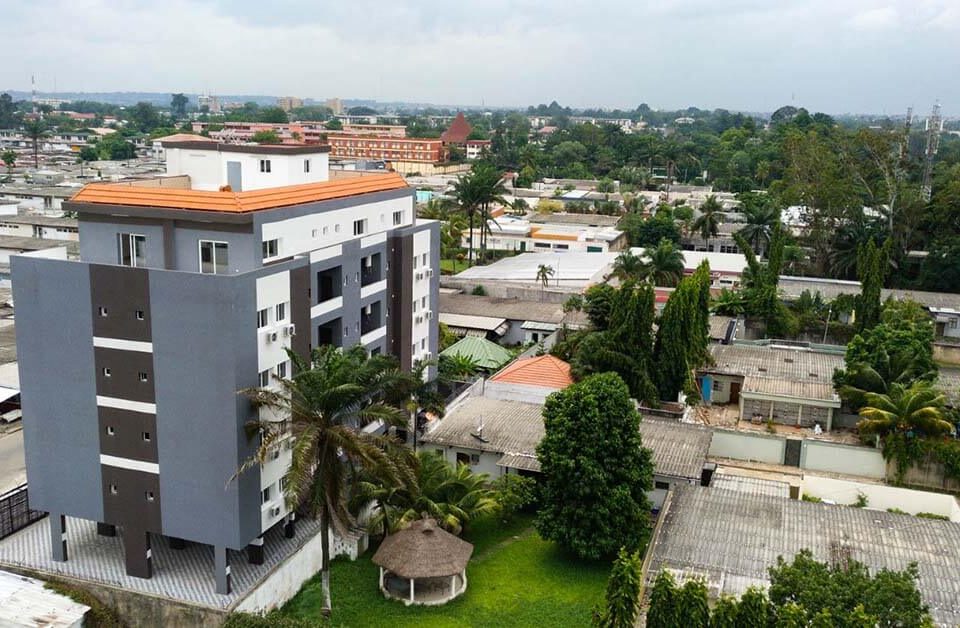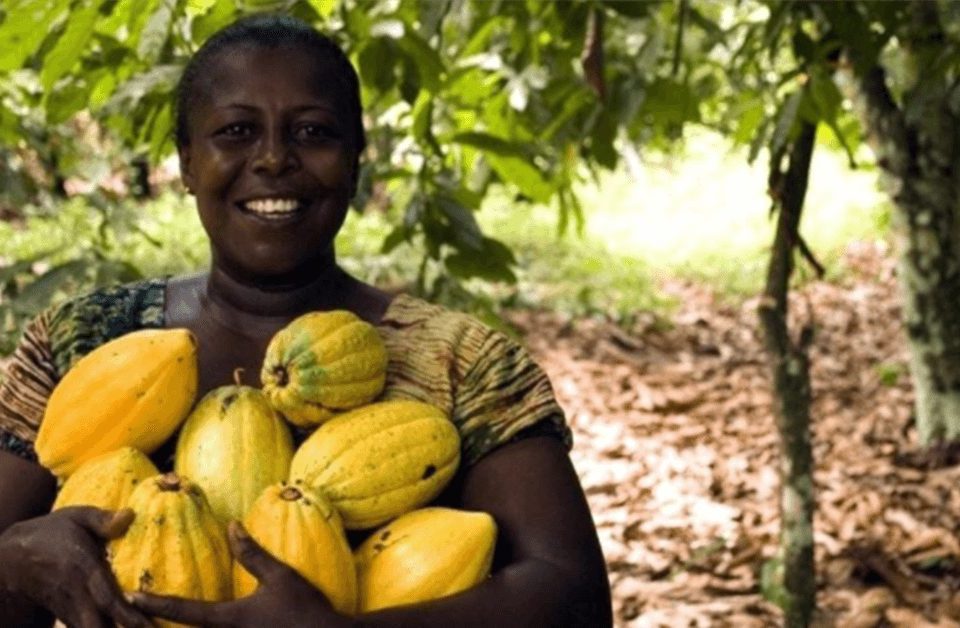Ivory Coast – The port of entry to West Africa

Doing business in the UK
July 19, 2017
Preparing for Brexit – International Trade
May 29, 2018Ivory Coast is a land of great opportunity and potential that in the last few years has managed to put some difficult times behind it.
If you’re looking to do business there, it’s a good idea to start slowly and spend some time learning about the market and how it works. To succeed you’ll need to demonstrate a presence, which means making frequent trips, getting yourself known and showing a commitment to the market and to the potential clients. And having a good local partner to accompany you in that journey is a good way to start.
Why Ivory Coast?
Ivory Coast is the second largest economy in West Africa after Nigeria (which has 190 million inhabitants to Ivory Coast’s 24 million).
In 2012, following a difficult decade of political upheaval, Ivory Coast initiated a return to stability. This has brought rich economic rewards, with GDP growth averaging over 8% over the last 5 years, well above the average for the continent. Outside opinion is almost unanimously positive about the country’s medium and long-term prospects.
The last elections held in October 2015 saw President Ouattara returned to power for a second mandate with an overall majority, following which he pledged to work towards gaining ‘emerging nation’ status by 2020.
Ivory Coast is a member of the Economic Community of West African States (ECOWAS), a common market of more than 300 million consumers from Benin, Burkina Faso, Cabo Verde, Ivory Coast, Gambia, Ghana, Guinea, Guinea-Bissau, Liberia, Mali, Niger, Senegal, Sierra Leone and Togo.
It’s also part of UEMOA (West African Economic & Monetary Union), together with 7 of the above countries. They all share a common currency, the CFA Franc, which is tied to the Euro and therefore eliminates currency risks in trading with Euro countries. (1EUR=655,957XOF).
Ivory Coast is the locomotive of UEMOA, accounting for 40% of its (its other members are Benin, Burkina Faso, Guinea-Bissau, Mali, Niger, Senegal and Togo). It is a member of the UN and shareholder of the IMF, the World Bank and the African Development Bank, whose HQ is in the capital Abidjan. The country is a founder member of the WTO and also belongs to the Organisation of Islamic Cooperation. From June 2017 it is a non-permanent member of the UN Security Council.
The Regions and incentives
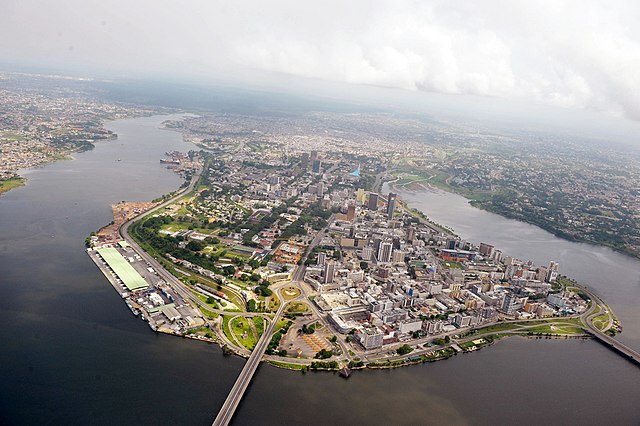
Abidjan is the economic capital with the biggest port in West Africa.
Abidjan, the economic capital boasts the largest port in West Africa and the second largest in sub-Saharan Africa after Durban. With 4.9 million inhabitants – a fifth of the country’s population – it is the dominant city, concentrating a large part of the economic activity. The political and administrative capital is the much smaller Yamoussoukro, located 150 miles north-west of Abidjan.
Bouaké is the second city, located in the centre of the country with a population of under 1 million. Although it is an important commercial centre, it is basically dependent on Abidjan, as are other cities such as San- Pédro, Korhogo, Daloa and the capital Yamoussoukro.
The Government incentivizes investments outside Abidjan via enhanced tax breaks, 8 years in “Zone B” investments (towns with more than 60.00O inhabitants) and 15 years in “Zone C”, when the investment is in smaller towns.
Foreign Investment Incentive Plans
In December 2015 the Government launched its National Development Plan 2016-2020 (PND), which based on the lessons learnt from the PND 2012-2015 aims to achieve ‘emerging country’ status by 2020. The plan contemplates investments of nearly €45bn, of which 37.6% will be from public funds with the rest coming from the private sector. The plan lays out 5 priorities:
- Strengthening the institutions and governability
- Development of human capital
- Structural transformation of the economy and job creation
- Development of infrastructures while respecting the environment
- Reinforcing regional intgration and international cooperation
In addition the country reformed its Investment Code in 2012 with the aim of attracting more investment from abroad, promoting partnerships between local and foreign firms, giving incentives for local production and diversifying investment towards other regions. The new rules guaranteed, among other things
- Total guarantee of respecting private property
- Freedom of currency exchange
- No tax or legal discrimination towards foreign investors, with the possibility of recourse to the administration, an arbitrator or the Courts.
- Tax advantages
That same year the The Investment Promotion Center in Côte d’Ivoire (CEPICI) was created, acting not only as a one stop shop for company incorporation, but also supporting investors who want to take advantage of the benefits of the new Investors Code.
High Growth Sectors

Ivory Coast is currently in an expansive phase with great potential in a wide range of sectors.
The latest National Development Plan includes most sectors, although there is a special emphasis on infrastructure – transport, water, energy and sanitation; the modernization of farming, industrial development, and social services
The interest from investors and the multilateral organizations such as the World Bank, the African Development Bank and the European Investment Bank are particularly focused on infrastructure.
- Energy: production increasing at annual rate of 10%, with an increase in the electricity access tariff and inclusion of renewables in the energy mix
- Transport : Highways San Pedro-Bamako and y Abidjan-Lagos, improvements in the Abidjan road network and construction of new tram system; expansion of the ports of Abidjan and San Pedro, and development of river transport.
- Water and Sanitation: mainly centered on Abidjan, expected to be expanded to other cities such as Bouaké.
Doing Business
Remember that in Ivory Coast, as in most of Africa, time is not measured as it is in Western countries. Foreign business people looking to adapt to Ivory Coast ways and be successful would do well to follow the rule of the 4 “P’s” – Prudence, Patience, Perseverance & Presence.

“Knowing the culture and the ways of doing business is basic in reaching agreements
Patience:
Things happen in African time. It’s not realistic to expect results after just one prospection trip, however much interest was shown about your products.
Prudence:
Information is often opaque or simply difficult to obtain. It’s possible that the largest company of a particular sector doesn’t even appear on the internet, hence the need to have the support of a specialist with local knowledge who can filter the opportunities.
Perseverance
Don’t expect to close deals by email after one trip. Generally you may well not get an immediate answer to your emails, but this is not necessarily a sign of lack of interest – it may well just be a question of priorities. Many company directors don’t delegate and get involved in every aspect of the company, meaning they’re short of time. The telephone is a good way of maintaining contact, and at times nudging them to respond to the email.
Presence:
At the risk of being repetitive, one trip will not be enough, since personal relations are important in business. To win the confidence of your potential clients or partners, you’ll need to show that your interest in the country is real, visiting several times to making an effort to cultivate your network of contacts.
The four “Ps2” will go some way to help you crack the market, but to uncover the full potential of Ivory Coast and achieving the success you’re looking for, there’s nothing like being able to count on the support of local experts.
Katia Martínez Garbaye , Managing Partner of How2Go Ivory Coast

